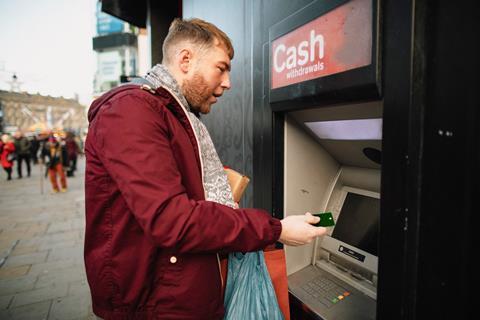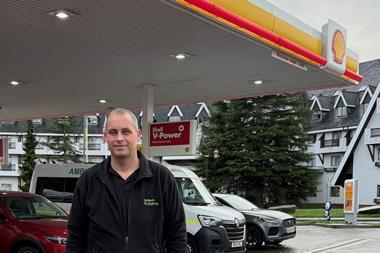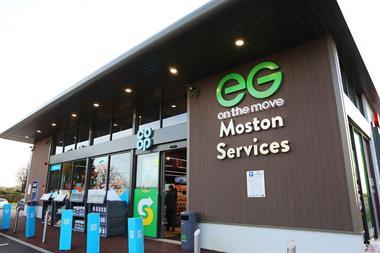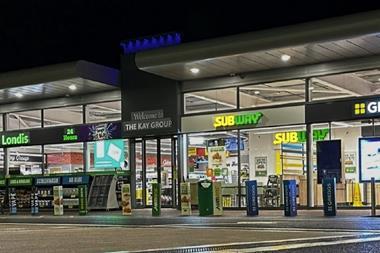
The number of free-to-use cash machines available in the UK has fallen by almost 30% in the last five years, according to new figures from the ACS.
ACS’ Access to Cash Tracker reveals the change in ATM provision in every constituency across the UK, providing detail on how the total number of ATMs in each constituency has changed since 2018, how the split between free-to-use and charged ATMs has changed since 2018, and how many people there are for every one ATM in each constituency. The Tracker uses official figures published by LINK every month on the access-to-cash provision throughout the UK.
The total number of free-to-use cash machines currently stands at 37,836, down from over 53,000 in 2018.
Figures from the 2023 Local Shop Report show that 40% of convenience store retailers offer a free-to-use cash machine for customers in their stores, with 12% having a charged cash machine on site.
ACS has called on the government to review the level of the interchange fee which is set by LINK to cover the operation and management of ATMs.
ACS chief executive James Lowman said: “Cash is still an incredibly important payment method for millions of people in the UK and is used by many customers as a way of managing their money. Convenience stores play a vital role in providing customers with access to their cash, especially with the closure of bank branches in communities, but many members have told us that they are being forced to either remove or change their free to use ATMs because they’re just not financially viable. We have called on the government to review the level of ATM interchange fees to ensure the long-term sustainability of the free to use ATM network.”
Kerry Booth, chief executive of the Rural Services Network said: “We are concerned about the reduction in availability of cash for rural residents. While the government has committed to people and businesses being no more than three miles away from a place that they can withdraw cash, reducing ATMs mean that in reality it is becoming more difficult for rural residents to access cash. In my constituency, the total number of ATMs has reduced by over a third in the last five years. We would like to see government ensure that rural residents are not being disadvantaged yet again simply because of where they live.“
Craig Beaumont, chief of external affairs at the Federation of Small Businesses, said: “It’s vital that cash remains an element of a competitive payments market, so consumers and businesses have choices. This keeps a downward pressure on card fees. We welcome ACS’s ATM monitor to help local communities, MPs and candidates keep track in their area.
“Maintaining our free to use ATM network and upgrading to ‘super-ATMs’ to enable deposits both sit alongside shared bank branches and full-service Post Offices as the way to make sure that everyone has the chance to use cash if they wish. Use of cash rose in the last assessment. While a ‘cashless society’ will be possible later, it should be when people are ready – and also when a potential digital currency launches to maintain competitiveness. The choice should be for consumers and businesses to make, not have that decision taken out of their hands by removing their access to cash.”
NoteMachine chief executive, Steve Makaritis, said: “NoteMachine has long been campaigning for a sustained funding model for free-to-use ATMs. The UK’s cash machine network is at a crunch point due to the withdrawal fee remaining the same since 2018, resulting in a 10% real terms reduction, leaving independent ATM operators like NoteMachine with no choice but to convert to pay-to-use.
“This funding challenge must be addressed by the FCA, with close support from government, in order to safeguard cash access for the consumers and businesses that rely on it as both a payment and budgeting method. Without intervention, the UK risks a significant reduction in free-to-use ATMs, jeopardizing cash accessibility for all.”


























